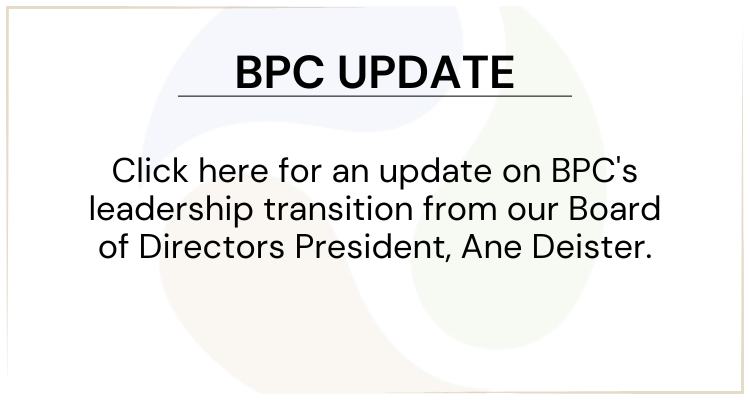TOP TRANSPORTATION COMMITTEE MEMBERS INTRODUCE BIPARTISAN BILL TO PROTECT CLEAN WATER, CREATE AMERICAN JOBS
May 18, 2017
Press Release
For Immediate Release: May 18, 2017
Contact: Jen Gilbreath Adler (DeFazio), 202-225-4472
Top Transportation Committee Members Introduce Bipartisan Bill to Protect Clean Water, Create American Jobs
Washington, D.C. — Today, Ranking Member of the House Committee on Transportation and Infrastructure Peter DeFazio (D-OR), Vice Chair of the House Committee on Transportation and Infrastructure John J. Duncan, Jr. (R-TN), and Ranking Member of the House Subcommittee on Water Resources and the Environment Grace Napolitano (D-CA) introduced bipartisan legislation that would help communities protect clean water and increase investments to repair crumbling wastewater infrastructure systems through Clean Water State Revolving Funds (SRF). The “Water Quality Protection and Job Creation Act of 2017”, invests $25 billion over five years in wastewater infrastructure and other efforts to improve water quality and create thousands of new, living wage construction jobs.
“America’s water infrastructure is in dire need of renewed Federal investment. Currently, our communities face a backlog of over $40 billion in clean water infrastructure projects, and they need close to $300 billion of investment over the next 20 years to protect clean water and bring their systems to a state of good repair. We cannot continue to neglect the serious needs of our aging water infrastructure systems. This legislation will help local governments repair and replace failing wastewater infrastructure, safeguard wastewater systems, and protect public health,” said DeFazio.
“Some of our water infrastructure is over 100 years old. If we do not start making wise investments now, it is going to cost much, much more in the future. This is a step in the right direction toward ensuring that our communities have access to clean water for many years to come,” said Duncan.
“Our legislation increases the capacity for cities and local agencies to construct vital storm water, water recycling and reuse, groundwater recharge, and water pollution control projects through EPA grants and loans,” said Napolitano. “These funds would particularly help cities in Los Angeles County, including those in my San Gabriel Valley-based district, in managing the Municipal Separate Storm Sewer System (MS4) permit from the State Regional Water Quality Control Board, while improving water supply infrastructure to manage future droughts. We hope Congress will consider this bill soon to assist communities like ours that are challenged by storm water concerns and unpredictable drought cycles.”
Investing in clean water creates thousands of new, domestic jobs in the construction industry and reduces the overall costs of constructing and maintaining that infrastructure. According to National Utility Contractors Association, for every $1 billion spent on our Nation’s water infrastructure, 27,000 jobs are created in communities across America, while improving public health and the environment at the same time. In addition, according to the Water Environment Research Foundation, water, wastewater, and stormwater utilities will contribute $524 billion to the U.S. economy over the next decade, supporting 289,000 permanent jobs. Without Federal investment, municipalities will be forced to cover more than 95 percent of the cost of clean water projects. The U.S. Environmental Protection Agency estimates that municipalities currently face a backlog of over $40 billion in clean water infrastructure projects. Over the next 20 years, they will need to invest an additional $300 billion to bring water infrastructure systems up to a state of good repair.
LEGISLATIVE SUMMARY
Title I – Water Quality Financing
* Authorizes $20 billion in Federal grants over five years to capitalize Clean Water SRFs. These funds provide low-interest loans and additional loan subsidizations (e.g., principal forgiveness and negative interest loans) to communities for wastewater infrastructure.
* Authorizes $1.5 billion over five years for grants for State water pollution control agencies to implement State water pollution control programs.
* Provides $600 million over five years for Clean Water pilot programs (including Federal technical assistance and/or grants) for watershed-based or system-wide efforts to address wet weather discharges, to promote stormwater best management practices, to undertake integrated water resource management, and to increase the resiliency of treatment works to natural or man-made disasters.
* Authorizes technical assistance to rural, small, and tribal communities to assist them in gaining access to financing wastewater infrastructure.
* Includes economic incentives to encourage the adoption of energy- and water-efficient technologies and practices to maximize the potential for efficient water use, reuse, and conservation, and energy conservation, and realize the potential corresponding cost-savings for water treatment.
Title II – Grants
* Authorizes $2.5 billion over five years for grants to address combined and sanitary sewer overflows and recapture and reuse of municipal stormwater under section 221 of the Clean Water Act.
* Authorizes $375 million in grants over five years for alternative water source projects under section 220 of the Clean Water Act, including projects that reuse wastewater and stormwater to augment the existing sources of water.
–30–
The White House
Office of the Press Secretary
For Immediate Release
May 18, 2017
Three Nominations Sent to the Senate Today
NOMINATIONS SENT TO THE SENATE:
Claire M. Grady, of Pennsylvania, to be Under Secretary for Management, Department of Homeland Security, vice Russell C. Deyo.
Neomi Rao, of the District of Columbia, to be Administrator of the Office of Information and Regulatory Affairs, Office of Management and Budget, vice Howard A. Shelanski.
David J. Redl, of New York, to be Assistant Secretary of Commerce for Communications and Information, vice Lawrence E. Strickling.

